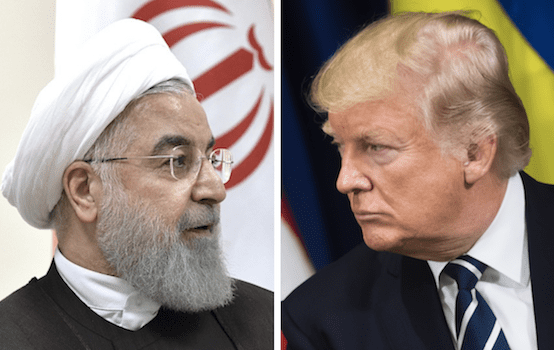‘Maximum Pressure’ Causes Resistance and Kills Diplomacy

Maysam Behravesh explains why the Iranian government won’t budge under continued U.S. pressure:
While intense diplomatic efforts are underway to break this escalatory cycle of hostility and confrontation, Tehran will likely press ahead with its defiant behavior unless and until the Trump administration provides it with an “off ramp,” as any major deviation under current circumstances could cost the Islamic Republic dearly in terms of credibility, authority, and eventually survival. To put it in a nutshell, the U.S. “maximum pressure” campaign” has arguably locked Iran into a posture of “maximum resistance” from which it is structurally implausible, if not impossible, to break free as long as the former remains in place.
Behravesh makes a very strong case that the Iranian government cannot make concessions now because they have no political room to maneuver at home, cannot afford to alienate the regime’s core supporters, and dare not encourage the U.S. to believe that they can be compelled to give Washington what it wants. Iran’s government tried appeasing the U.S. five years ago with the JCPOA, and that has worked out very badly for them. It is understandable that there is no more appetite for further appeasement of an aggressive power.
There is also a matter of self-respect that hard-liners in this country never understand. Yielding to U.S. demands at this point would be a humiliation for any government, and especially for one that has defined itself in terms of resistance to the U.S. This is one reason why all three targets of Trump’s “maximum pressure” campaigns have resisted and refused to give Trump an inch. Perhaps if the Trump administration showed any hint of flexibility and a willingness to offer incentives up front, it might be possible for the Iranian government to show similar flexibility. When U.S. demands are so excessive and unrealistic, there is not much chance of that.
It might seem strange that much weaker states would put up so much resistance, but to understand this we would only have to look back at the U.S. habit of toppling governments that had already complied with Washington’s demands. When our government is bent on regime change, as it certainly is in Iran and Venezuela, it is natural for the leaders in the targeted regimes to assume that there is no point in talking to the U.S. The stakes for these governments are as high as they can be, and when the U.S. is offering nothing more than relief from the sanctions our government has imposed it is not worth taking the risk. Pressure causes resistance, and when the alternative to resistance is abject surrender we should expect almost any government to keep resisting as long as they can.
It is not an accident that “maximum pressure” kills diplomacy. That is what it is meant to do, and that is why hard-liners that detest diplomatic compromises are such big supporters. The administration’s pressure-only approach is designed to increase tensions and force confrontation. Of course, the more that a targeted regime believes that its survival and core interests are threatened, the less likely it is to agree to anything. The current administration obviously has no interest in a diplomatic solution to the crisis they have created with Iran, so it will be up to the next administration to abandon “maximum pressure” and try to repair at least some of the damage that has been done over the last few years.
Comments